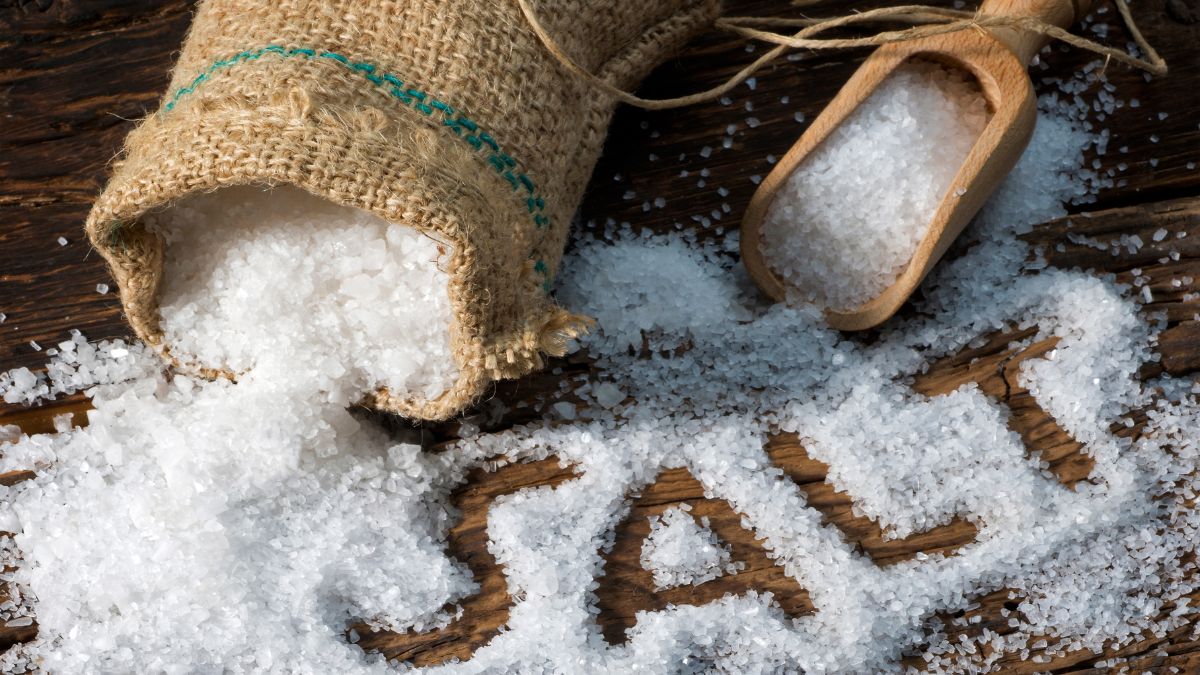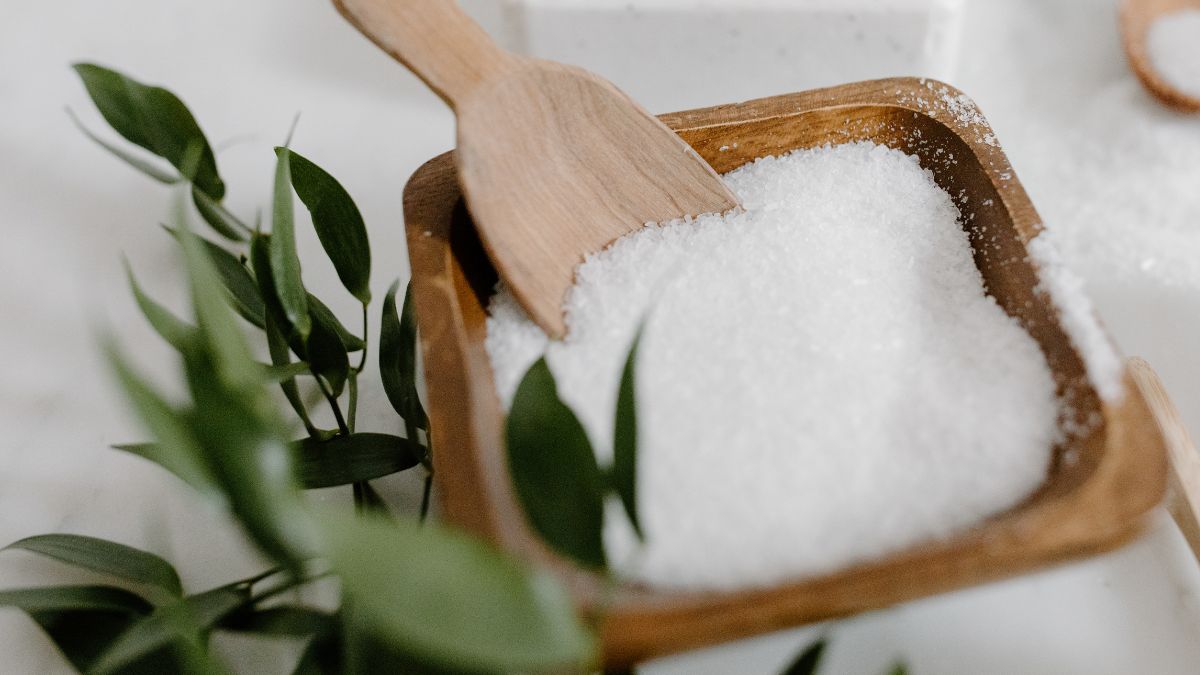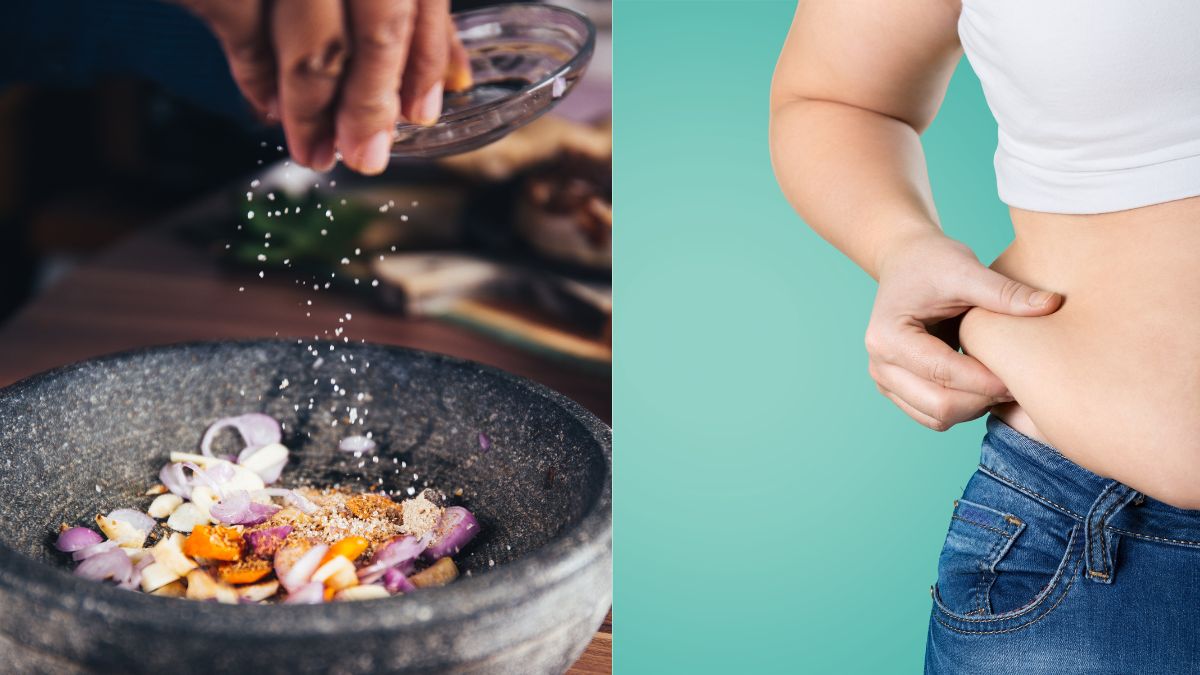- By Priyanka Munshi
- Fri, 29 Sep 2023 01:40 PM (IST)
- Source:JND
Salt consumption can have both positive and negative effects on an individual, depending on the amount taken. Sodium-containing substances like salt are necessary for many body processes, including controlling fluid balance, neuronal transmission, and muscle contraction. On the other hand, consuming too much salt can result in health issues like high blood pressure, which raises the risk of heart disease and stroke. Therefore, finding a balance is essential. To maintain a healthy balance and lower the risk of related health problems, it is advisable to control and keep track of your salt intake.
Ms. Kalpana Gupta, who is a clinical nutritionist in nutrition and dietetics at Max Smart Super Speciality Hospital in Saket, told Jagran English about how much salt is OK to consume in a day and also the side effects of its overdose.

To maintain a healthy balance and lower the risk of related health problems, it is advisable to control and keep track of your salt intake. (Image Credit: Canva)
Ms. Kalpana said, "Salt is a mineral, which is also known as sodium chloride. Salt contains about 40% sodium and 60% chloride. Salt is used for flavoring food, as a binder, and as a stabilizer. It is also used for preserving food items like pickles, papad, chutney, etc., as bacteria cannot live in the presence of an extra amount of salt. Food sources of sodium are salt, pickles, processed popcorn, butter, Maggie noodles, cookies, sauces, Horlicks, etc."
Food Labeling Guide For Sodium Is As Follows
| Sodium free | Less than 5 mg per standard serving |
| Low Sodium | 140 mg or less per standard serving |
| Light in Sodium | 50 % less sodium per standard serving than in the regular food |
| Unsalted, without added salt | No salt added during processing, the product resembles is normally processed with salt |
| Lightly salted | 50% less added sodium than is normally added. |
She further added, "As per the RDA 2023 recommendation, sodium per day for adults is 2300 MG/DAY = 2.3 g/day = 1/2 tsp. It is essential for the neuromuscular functions of the human body. Along with chloride, it helps in maintaining the hemostasis of water and minerals in the body. If taken in excess, it has a negative impact on the body, resulting in edema, hypernatremia, high blood pressure, cardiovascular disease, stroke, and kidney dysfunction. So many of the organizations now emphasize limited salt intake."
Also Read: 5 Impeccable Health Benefits Of Drinking Sesame Seeds Water In The Morning
Side Effects Excess Intake Of Salt
High Blood Pressure
Excessive salt consumption can raise blood pressure because it interferes with renal function and makes it more difficult for the kidneys to excrete waste fluid.
Not Sleeping Properly
Before going to bed, consuming too much salt can disrupt sleep, resulting in restless sleep, numerous night awakenings, and morning weariness.

Another side effect of consuming to much of salt is that it can raise blood pressure. (Image Credit: Canva)
Weight Gain
Retaining water can result in weight gain, particularly if you've gained weight rapidly over the course of a week or a few days owing to consuming too much salt. Reduce your salt intake if you are gaining more than 2 pounds per day or 4 pounds per week.
Also Read: World Heart Day 2023: Best And Easy-To-Do Yoga Poses To Keep Your Heart Healthy
Bloating
Overconsumption of salt can result in bloating, a tight or inflated stomach sensation that helps the body retain water and gather additional fluid. Sandwiches, pizza, bagels, and canned soups can all contain a lot of sodium with no discernible flavour.
Using The Restroom So Frequently
Due to increased thirst brought on by higher salt consumption, there may be a correlation between increased salt consumption and an increase in bathroom visits.

